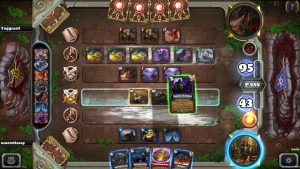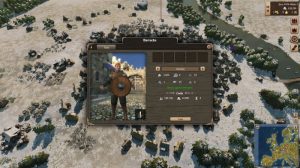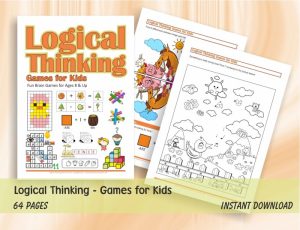
Stepping into the digital realms of online games, players often seek more than just a fleeting experience. They crave immersion, a sense of ownership, and the ability to craft a character that truly reflects their vision. In-depth character customization offers this opportunity, allowing players to mold their digital avatars into unique and captivating representations of themselves.
From the intricate details of physical appearance to the complex systems of skill trees and stat allocation, the possibilities are endless. This exploration delves into the world of online games that prioritize customization, examining the impact it has on gameplay, community building, and the future of gaming itself.
The Impact of Customization on Gameplay

In-depth character customization is a powerful tool in game design, offering players the ability to shape their virtual identities and tailor their experiences. It goes beyond simply changing the appearance of a character, it directly influences the mechanics of gameplay, impacting strategy, player choices, and the overall feel of the game.
Customization and Role-Playing
Customization significantly enhances the role-playing experience, allowing players to create characters that align with their desired playstyle and narrative. This is particularly true in games like “The Elder Scrolls V: Skyrim” and “Fallout 4,” where players can build characters with specific skills, attributes, and backgrounds. For instance, a player can choose to be a stealthy assassin in “Skyrim,” specializing in skills like sneak and archery, or a powerful mage, focusing on spells and magical abilities.
This freedom allows players to immerse themselves in the game world and tell their own unique stories.
The Future of Customization
Character customization has become an integral part of modern gaming, allowing players to express themselves and create unique in-game identities. As technology continues to advance, we can expect even more innovative and immersive customization options in the future.
Emerging Trends in Character Customization
The future of character customization is brimming with exciting possibilities. Emerging trends, driven by advancements in artificial intelligence, procedural generation, and metaverse integration, are poised to redefine how players interact with and personalize their gaming experiences.
- Procedural Generation: This technique leverages algorithms to create unique and diverse character features, assets, and even entire worlds. Games like “No Man’s Sky” and “Minecraft” have already demonstrated the power of procedural generation in crafting vast and ever-changing landscapes. As this technology evolves, we can expect to see more sophisticated algorithms that generate highly detailed and customizable characters with unparalleled variety.
- AI-Powered Customization: AI is transforming the way players interact with their characters. AI-powered customization tools can analyze player preferences and suggest personalized customization options, making the process more intuitive and efficient. AI can also learn from player choices and adapt to their evolving style, resulting in characters that evolve alongside the player’s journey.
- Metaverse Integration: The metaverse, a shared virtual world, offers an unprecedented level of customization. Players can create avatars that reflect their real-world identities or explore entirely new personas. This opens up possibilities for creating unique virtual spaces and experiences, where players can interact with others and express themselves in ways never before possible.
Potential Future Advancements in Customization Technology
Beyond emerging trends, advancements in technology are set to unlock even more possibilities for character customization.
- Real-Time Customization: Imagine being able to adjust your character’s appearance and abilities in real-time, even during gameplay. This would allow for dynamic and adaptive customization, allowing players to react to changing situations and adapt their characters to different challenges. Games like “Destiny 2” already offer limited real-time customization options, and this technology is poised to become more sophisticated in the future.
- Biometric Customization: Imagine using your own facial features, voice, and even body movements to create a truly unique and personalized avatar. This could involve capturing your physical attributes using advanced scanning technology or even leveraging facial recognition software. Biometric customization would blur the lines between the real and virtual worlds, creating truly immersive and personalized gaming experiences.
- Virtual Reality and Augmented Reality Integration: VR and AR technologies offer exciting opportunities for enhancing character customization. VR allows players to interact with their characters in a more immersive and intuitive way, while AR can overlay virtual elements onto the real world, bringing characters to life in a new and exciting way.
Hypothetical Scenario: A Game with Cutting-Edge Customization Features
Imagine a game set in a vast and dynamic metaverse where players can create characters with unparalleled depth and detail. Using advanced procedural generation algorithms, players can generate unique appearances, abilities, and backstories for their characters, ensuring no two characters are alike. AI-powered customization tools learn from player preferences and suggest personalized options, making the customization process seamless and enjoyable.Players can interact with their characters in real-time, adjusting their appearance and abilities on the fly.
Biometric customization allows players to create avatars that reflect their real-world identities, blurring the lines between the virtual and real worlds. VR and AR integration provide immersive and interactive experiences, allowing players to truly feel like they are stepping into the game world.This hypothetical scenario showcases the potential for character customization to become an even more integral part of the gaming experience.
As technology advances, we can expect to see games that offer unparalleled levels of customization, allowing players to create unique and engaging experiences.
Online Games with In-depth Customization
The allure of online games lies in their ability to transport players into immersive worlds, allowing them to forge unique identities and embark on extraordinary adventures. However, the depth of these experiences often hinges on the extent of character customization available, empowering players to create truly personal representations within the virtual realm.
Popular Online Games with In-depth Customization
This section will explore a selection of popular online games renowned for their comprehensive character customization options. These games cater to diverse genres and audiences, showcasing the transformative power of personalization in enhancing gameplay.
- The Elder Scrolls Online (MMORPG): Set in the vast and rich world of Tamriel, The Elder Scrolls Online offers unparalleled freedom in shaping your character’s appearance, skills, and playstyle. Players can choose from a wide range of races, classes, and abilities, allowing for an incredible degree of customization. The game also features a robust crafting system, enabling players to create unique gear and items to further personalize their characters.
- Black Desert Online (MMORPG): Known for its stunning graphics and deep combat system, Black Desert Online also boasts a highly detailed character customization system. Players can meticulously sculpt their character’s features, from facial expressions to body proportions. The game also allows for extensive customization of character outfits, weapons, and accessories, giving players the ability to express their individual style.
- Destiny 2 (FPS/Looter Shooter): While primarily a first-person shooter, Destiny 2 allows players to create unique Guardians, customizing their appearance, armor, and weapons. Players can choose from a variety of classes, each with distinct abilities and playstyles. The game also features a vast array of cosmetic items, including armor sets, shaders, and emotes, enabling players to personalize their Guardians and stand out in the Crucible.
- Final Fantasy XIV (MMORPG): With its rich lore and captivating story, Final Fantasy XIV offers a wide range of character customization options. Players can choose from a variety of races, classes, and hairstyles, and even customize their character’s facial features. The game also features a comprehensive glamour system, allowing players to equip cosmetic items over their gear, enabling them to create unique and stylish looks.
- World of Warcraft (MMORPG): A pioneer in the MMORPG genre, World of Warcraft offers a vast array of customization options, allowing players to create unique heroes and embark on epic adventures. Players can choose from a variety of races, classes, and specializations, and even customize their character’s appearance with a wide range of hairstyles, facial features, and tattoos. The game also features a robust transmog system, allowing players to equip cosmetic items over their gear, giving them the freedom to express their personal style.
Character Customization by Genre and Target Audience
The following table categorizes the aforementioned games by genre and target audience, highlighting the specific customization features that appeal to each group.
| Game | Genre | Target Audience | Key Customization Features |
|---|---|---|---|
| The Elder Scrolls Online | MMORPG | Fantasy RPG enthusiasts, Roleplaying enthusiasts | Race, Class, Skills, Crafting, Appearance, Playstyle |
| Black Desert Online | MMORPG | Action RPG enthusiasts, Combat-focused players | Appearance, Outfits, Weapons, Accessories, Combat Style |
| Destiny 2 | FPS/Looter Shooter | Action-oriented players, Sci-fi enthusiasts | Class, Armor, Weapons, Emotes, Cosmetic Items |
| Final Fantasy XIV | MMORPG | Story-driven players, JRPG enthusiasts | Race, Class, Appearance, Glamour System, Hairstyles |
| World of Warcraft | MMORPG | Fantasy RPG enthusiasts, Social players | Race, Class, Specialization, Appearance, Transmog System |
Personal Experiences with Character Customization
“I remember spending hours in the character creation screen of The Elder Scrolls Online, meticulously crafting my character’s appearance. I wanted to create a unique and memorable character that reflected my personality and playstyle. The level of detail and freedom offered by the game was truly impressive.”
“In Black Desert Online, I found myself constantly experimenting with different outfits and accessories, trying to create the perfect look for my character. The game’s character customization system is so deep that I could spend hours just tweaking my character’s appearance. It was a fun and engaging experience that allowed me to express my creativity and individuality.”
“Destiny 2’s character customization system is more focused on functionality than aesthetics. While the game offers a decent selection of armor and weapons, the real customization comes from choosing the right class and abilities to suit your playstyle. I found myself constantly experimenting with different loadouts and builds, trying to find the perfect combination for my Guardian.”
“Final Fantasy XIV’s glamour system is a game-changer. It allows players to express their personal style without sacrificing their gear’s stats. I’ve spent countless hours creating different looks for my character, using a combination of cosmetic items and dyes to achieve the desired effect. It’s a great way to showcase your creativity and individuality.”
“World of Warcraft’s transmog system is a staple of the game. It allows players to equip cosmetic items over their gear, giving them the freedom to create unique and stylish looks. I’ve always enjoyed experimenting with different transmog sets, trying to find the perfect combination that reflects my character’s personality and my own sense of style.”
Related Game Categories

The world of online gaming is vast and diverse, encompassing a wide range of genres and categories. Understanding these categories is crucial for both developers and players, as it allows for better targeting, discovery, and enjoyment of games. This section explores various game categories, highlighting their defining characteristics and popular examples, with a focus on those that offer in-depth character customization.
Exploring the Landscape
The provided game categories can be organized into a table to provide a clearer overview of their characteristics and common features.
| Category | Characteristics | Common Features | Popular Examples with Customization |
|---|---|---|---|
| Adventure | Focus on storytelling, exploration, and problem-solving. Often feature non-linear gameplay and player choice. | Interactive narratives, puzzles, environmental exploration, character development. |
|
| App | Games designed for mobile devices, often featuring simple mechanics and quick gameplay sessions. | Touchscreen controls, bite-sized gameplay, social integration, free-to-play models. |
|
| Anime | Inspired by anime series, often featuring stylized visuals, engaging narratives, and characters with unique personalities. | Japanese animation style, character-driven stories, turn-based combat, visual novel elements. |
|
| Arcade | Fast-paced, action-oriented games with simple controls and addictive gameplay. | High scores, competitive leaderboards, classic game mechanics, retro aesthetics. |
|
| Best | A subjective category, referring to games considered the best in their genre or overall. | High-quality graphics, engaging gameplay, compelling narratives, innovative features. |
|
| Barbie | Games targeted at young girls, often featuring themes of fashion, beauty, and social interaction. | Interactive storytelling, dress-up and styling features, social activities, creative expression. |
|
| Batman | Games based on the Batman franchise, often featuring action-adventure gameplay, detective elements, and superhero themes. | Combat mechanics, gadget usage, stealth gameplay, open-world exploration. |
|
| Bus | Games focused on driving and managing buses, often simulating realistic bus routes and passenger interactions. | Vehicle simulation, passenger management, route planning, realistic environments. |
|
| Bingo | Games based on the classic bingo game, often featuring social elements and opportunities to win prizes. | Number matching, card selection, chat features, prize pools, community interaction. |
|
| Business | Games that simulate business operations, requiring players to make strategic decisions and manage resources. | Resource management, market competition, financial planning, company expansion. |
|
| Car Racing | Games focused on racing cars, often featuring realistic physics, competitive multiplayer, and customization options. | Vehicle handling, track design, race modes, car upgrades, customization. |
|
| Cards | Games based on card mechanics, often featuring strategic gameplay, skill-based competition, and social elements. | Card combinations, strategic play, card collecting, multiplayer modes, social interaction. |
|
| Competition | Games designed for competitive play, often featuring ranked ladders, tournaments, and esports events. | Skill-based gameplay, competitive balance, strategic decision-making, teamwork, community engagement. |
|
| Disney | Games based on Disney franchises, often featuring characters, stories, and themes from Disney movies and shows. | Familiar characters, engaging narratives, family-friendly gameplay, creative activities. |
|
| Driving | Games focused on driving vehicles, often featuring realistic physics, open-world environments, and customization options. | Vehicle handling, traffic simulation, open-world exploration, customization. |
|
| Strategy | Games that require players to make strategic decisions, manage resources, and outmaneuver opponents. | Resource management, unit control, map strategy, turn-based or real-time gameplay. |
|
| Solitaire | Games based on the classic solitaire card game, often featuring variations on the rules and gameplay. | Card matching, strategy, patience, solo play, time-based challenges. |
|
| Soccer | Games focused on soccer, often featuring realistic gameplay, competitive multiplayer, and team management. | Player control, team tactics, realistic physics, competitive modes, team management. |
|
| Steam | A digital distribution platform for PC games, featuring a vast library of games, community features, and customization options. | Game library management, community features, digital game purchases, in-game customization options. |
|
| Educational Games | Games designed to teach specific skills or knowledge, often incorporating interactive elements and engaging narratives. | Learning objectives, interactive gameplay, educational content, engaging storylines, assessment tools. |
|
| Sports Games | Games simulating various sports, often featuring realistic gameplay, competitive multiplayer, and team management. | Player control, team tactics, realistic physics, competitive modes, team management, sports simulation. |
|
| Strategy Games | Games that require players to make strategic decisions, manage resources, and outmaneuver opponents. | Resource management, unit control, map strategy, turn-based or real-time gameplay, strategic thinking, competitive play. |
|
As the gaming landscape evolves, character customization continues to play a vital role in shaping player experiences. The ability to personalize digital avatars fuels a sense of ownership, encourages creativity, and fosters vibrant online communities. From the detailed character creation screens of modern RPGs to the ever-expanding possibilities of the metaverse, the future of customization holds exciting potential for both players and developers alike.
Clarifying Questions
What are some examples of online games with in-depth character customization?
Popular examples include games like “The Elder Scrolls Online,” “Black Desert Online,” “Final Fantasy XIV,” and “Guild Wars 2,” each offering a wide range of customization options.
How does character customization impact the gameplay experience?
Customization can directly affect gameplay mechanics, such as combat strategies, role-playing choices, and progression paths. It can also influence player interactions and community building, as players share and admire their unique creations.
Is character customization only available in RPGs and MMOs?
While RPGs and MMOs are known for their extensive customization options, many other genres, including action games, fighting games, and even strategy games, are incorporating deeper character customization features.



